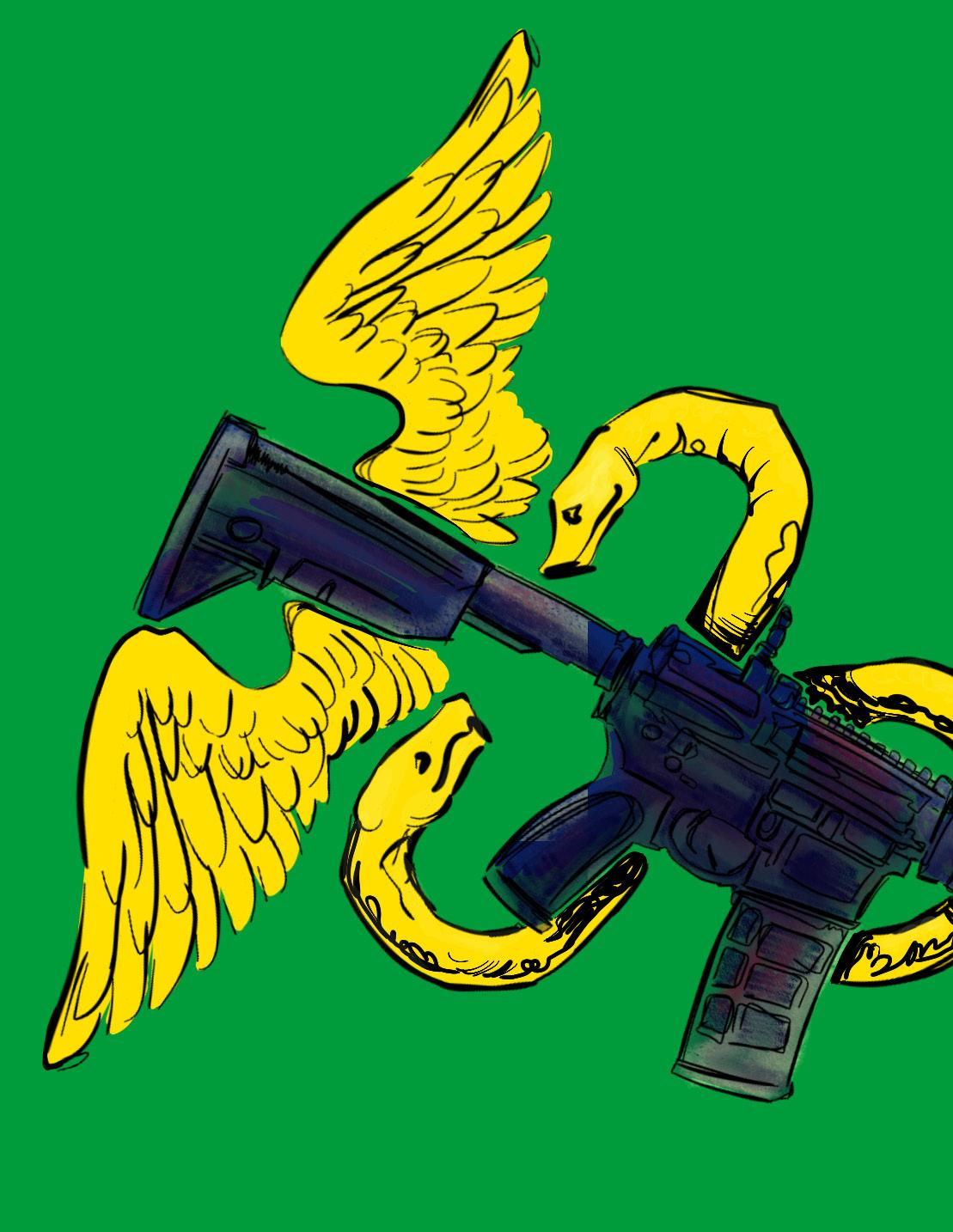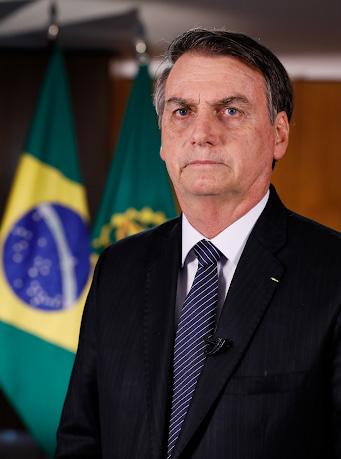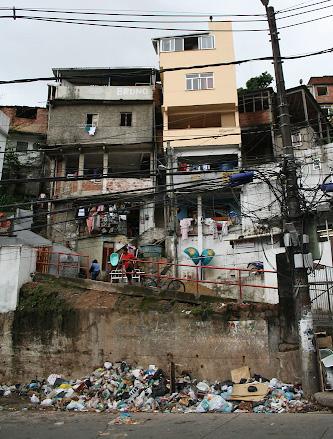
7 minute read
The Rise of an Unlikely Public Health Ally: Brazilian Drug Cartels • Sophia De Olivera
The Unlikely Health Ally
By Sophia De Olivera
Advertisement

The Rise of an Unlikely Public Health Ally Brazilian Drug Cartels
Favela des Plaisirs in Rio de Janeiro, Brazil bus shuttling me to my grandmother’s house from the Rio International Airport, I found myself exceedingly curious about the towering multicolored slums decorating the outskirts of the Brazilian city. These vast stretches of impoverished housing, known as Favelas, were unlike anything I’d ever seen in the developed world. Although I was inquisitive about what life looked like inside these vast stretches of informal settlements, my parents strongly advised me against familiarizing myself with Favelas since I was a child. My extensive Brazilian family was conscious of the dangers housed in Favelas; these government-neglected neighborhoods, although not inherently dangerous, are known to house pockets riddled with the gruesome gang and drug violence that make Favelas incredibly inhospitable toward outsiders. However, the Coronavirus pandemic ravaging the world since late 2019 has painted the culture of Favelas in an extraordinarily different light. Against a government neglecting the dangers of Coronavirus, drug trafficking gangs in Brazilian Favelas have emerged as an unlikely proponent of public health and safety.
Brazil has been one of the hardest-hit countries by the Coronavirus, reporting over 7 million cases and 186,356 deaths.1 These staggering numbers are likely significantly less than the real values due to the underreporting of Coronavirus cases in Favelas and rural areas. Since the onset of the Coronavirus outbreak in Brazil, Brazilian President Jair Flickr Bolsonaro’s response has reaffirmed his ineptitude to effectively respond to a health crisis of this magnitude, from antagonizing his health minister to promoting resistance towards public safety measures.
Consequently, distrust towards the Brazilian healthcare system and the presidential cabinet has gained widespread prominence among the general Brazilian public. A young gang member from a Rio Favela showcases this omnipresent distrust by declaring that “the hospitals kill more than if you stay home and take care of yourself.” 2 This distrust is rooted in the corruption of the Brazilian public health famously states that “health is a universal right and a duty of the state”; however, a 2019 report by the Organization for Economic Co-operation and Development discovered Brazil’s per-capita health care spending to be thirty percent below the average for developed countries, classifying it among the countries contributing the least to public health.3 This dichotomy between governmental promise and action has been exasperated by the Coronavirus pandemic that has similarly exposed several other fallacies in the Brazilian public health system, some of which have proven to cost hundreds of thousands of lives so far. Such fallacies have proven most deadly to the 15 million Favela residents, who are commonly poor, burdened with chronic illness, situated far from adequate hospital

As I peered outside the window of a
service, and live in extremely close quarters.
Void of adequate help from the state, drug cartels in Favelas responded by stepping up and taking the health and safety of their community into their own hands by establishing curfews, social distancing laws, and delivering food to those in need. Even before the Coronavirus pandemic, these drug cartels, heavily armed with semi-automatic rifles, such as AR-15s, M4s, Glock pistols, rifles, and sometimes even grenades, maintained strict control over Favelas by guarding the area against police and rival gangs. In the absence of government involvement and the Favelas’ known immunity to authorities, drug cartels institute and enforce social contracts within their own Favelas. In doing so, drug cartels establish themselves as providers for their respective Favela. Once the Coronavirus pandemic hit, drug cartels maintained the role of provider by quickly educating themselves about the Coronavirus and public health safety measures in order to protect their communities. Most prominently, the efforts of Favela drug cartels to promote pub-
“Against a government neglecting the dangers of Coronavirus, drug trafficking gangs in Brazilian Favelas have emerged as an unlikely system, Sistema Unico de Saude (Single A viral video of the Comando Vermelho ”proponent of public health and safety. Health System). The Brazilian constitution (Red Command) gang leaders in the famous lic safety have manifested in strict curfews. Cidade de Deus (City of God) Favela showcases a gang member with a loudspeaker broadcasting a recorded message to residents: “Anyone found messing or walking around outside will be punished.” Such curfew has also extended to bars, restaurants, and even churches, as drug cartels have ordered many businesses and institutions to promptly decrease operating hours. The efficacy of a
Coronavirus curfew has proved effective as residents, fearing death due to violating curfew, have left Favela streets relatively quiet and void of the normal lively humming of music and camaraderie between residents. A decrease in social interaction between residents has greatly mitigated the spread of the deadly virus in these settlements. In turn, many other of Rio De Janeiro’s 1,000 Favelas instituted curfews in an effort to hinder the spread of Coronavirus among its residents.
Additionally, drug cartels across hundreds of Favelas have distributed soap and bottles of hand sanitizer to residents, placed several large posters around their Favelas, and ordered residents through social media posts and megaphones atop moving cars to practice good hygiene. These measures are especially important because the typical Favela often has no standard for sanitation due to forced closed living quarters and inadequate access to running water.4
One Favela resident explains that those who live at the top of the hill (Favelas are often situated on hillsides) often don’t receive running water for two weeks. Favela drug cartels have prioritized the delivery of hand sanitizer and other alcohol-based disinfectant products to these residents in recognition of their lack of access to water. Likewise, drug cartels have placed large posters and published social media announcements
Flickr

Brazilian President Jair Bolsonaro has repeatedly downplayed the gravity of the Coronavirus pandemic. concerning hygiene in an effort to hinder the introduction of Coronavirus into Favelas by outsiders. Drug cartels have strategically positioned large posters reminding individuals to wash their hands at the Favela boundaries, where they hope to remind incoming visitors, who are often in search of drugs, to practice good hygiene.
Favela drug cartels have also contributed to their communities’ health and safety in several other remarkable manners. First, of prominence, is the distribution of groceries to Favela residents. During a CNN visit to an undisclosed Favela, reporters described seeing drug cartels gifting groceries to Favela residents who have been hardest hit by the pandemic.1 One package of groceries was given to a manicurist in the Favela, who is reported to have been out of work for four months; the second package was gifted to a street vendor who has experi-
enced great difficulty selling her products. Second, several drug cartels have transsolve it. ” formed their Favelas into major local manufacturers of face masks and sick wards, where they have begun massively distributing face masks and housing COVID-19 carriers. Third, Favelas have notably organized ambulances, equipped with physicians and first-responders, to respond to local emergencies after the failure of adequate municipal government aid.5
Throughout the entirety of the pandemic thus far, drug cartels have famously stated that if the Brazilian government does not have the capacity to fix the suffering caused by the pandemic, organized crime will solve it. Through the imposition of curfews, social distancing measures, hygiene, and food delivery, Favela drug cartels have accomplished exactly that. The notable efforts of drug cartels in fighting back against the
Flickr

Depiction of close unsanitary living quarters and streets littered with trash in Favela da Rocinha Coronavirus and systemic governmental neglect have helped protect the lives of the 15 million Brazilians that call Favelas home.
As I get ready to return to Brazil after the end of the global pandemic, I am ever more intrigued by the Favelas that decorate the city I call my second home. Peering outside my window, I’ll no longer simply see Favelas as vast stretches of informal settlements, but strong, independent, and resilient self-governing entities. Similarly, I’ll no longer unconsciously consume the narrative of Favelas as unkempt and unruly, but, rather, I’ll challenge it. Despite being an unlikely ally for public health and safety, Brazilian drug cartels have accomplished what many worldwide argue the Brazilian government was incapable of doing. With the least amount of medical and governmental aid, social structure, and the worst living conditions, the perseverance of Favelas throughout this pandemic has been an extraordinary feat and has served as a model for many other social entities. Perhaps, most importantly, Brazilian Favelas’ unity has proven that the most essential thing in fighting this pandemic is community solidarity. ■
www
Sophia De Oliveira is a freshman in Morse College. Sophia is a prospective Sociology major from Wisconsin. She can be contacted at sophia. deoliveira@yale.edu.








